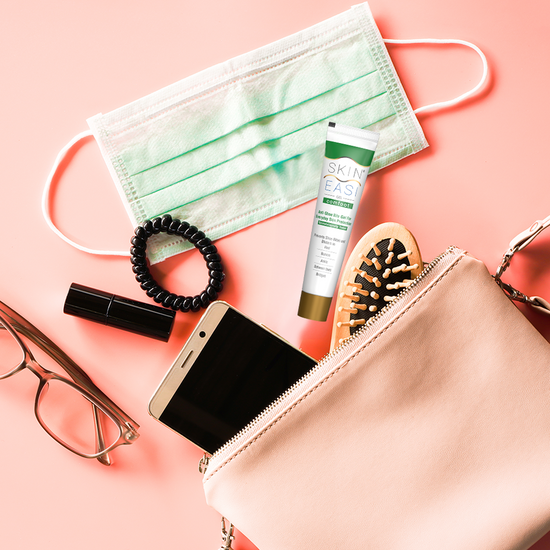Menstrual Hygiene is No Joke
Menstruation is a significant aspect of a woman's life, beginning at puberty and continuing through middle age. For many, "those days" can be both physically and mentally taxing. Amid the discomfort and mood swings, maintaining proper menstrual hygiene is crucial. Proper hygiene practices during menstruation protect intimate health from bacterial infections, vaginal irritation, urinary tract infections (UTIs), and other related issues. It also boosts self-esteem, confidence, and overall comfort with one's body during menstruation.

Easy-Peasy Tips for Menstrual Hygiene
Menstruation is a vital process that demands utmost care and attention. Here are some key tips to ensure a stress-free menstruation experience, free from stench, infections, or discomfort.
Change Regularly
One of the most important rules for maintaining good menstrual hygiene is changing sanitary products regularly. Depending on the type of product and the heaviness of your flow, it is advisable to change your pad, tampon, or menstrual cup every 2-4 or 4-6 hours. This practice helps prevent leaks, bad odour, and skin rashes and significantly reduces the risk of infections.
Wash the Privates
During menstruation, the blood creates an ideal environment for bacteria to thrive. Therefore, washing your vaginal area regularly is essential. Bacteria can cling to your body even after removing a sanitary pad, so cleaning helps prevent bad odour and infection. However, avoid over-washing as it may disrupt your pH balance, making you more susceptible to yeast infections and bacterial vaginosis.

Refrain from Using Soaps or Vaginal Products
The vagina has self-cleaning abilities, meaning you don’t need to use soaps, cleansers, or intimate washes unless prescribed by a doctor. Most commercial cleansers are acidic and can disrupt your pH balance, leading to vaginal infections, rashes, and itching. Clean water is sufficient to keep the area hygienic.
Dispose of Sanitary Waste Hygienically
Proper disposal of sanitary waste is a key step in menstrual hygiene. Used pads or tampons should be wrapped in paper to contain the smell and disposed of in a designated bin to prevent the spread of harmful bacteria. Flushing sanitary products can clog sewage pipes and drains, so always throw them in the trash. Don't forget to wash your hands thoroughly after disposal.
Consider Your Wardrobe
During your menstrual cycle, avoid tight clothing, especially around the legs, or fabrics that don’t breathe, like synthetics. These materials can trap moisture and heat, creating an environment for germs to thrive. Wearing comfortable, loose clothing during periods ensures airflow around sensitive areas and helps prevent sweating and discomfort.
Look Out for Pad Rash
Pad rash is a common issue during menstruation. The prolonged wetness and plastic content of menstrual pads can irritate the skin and lead to dermatitis. SkinEasi’s Second Skin Barrier Gel, SkinEasi regina is a life saviour! Applying after a bath and before bed protects you from the annoying sanitary pad rashes and irritation caused by it. To avoid pad rash, try to stay as dry as possible.
Menstrual Hygiene Day: Prioritizing Emotional Health

1. Stay Hydrated and Eat Healthily
Drink plenty of water and maintain a balanced diet during your period. Hydration and nutrition play a significant role in managing menstrual symptoms and keeping your body healthy.
2. Practice Self-Care
Engaging in self-care activities can help manage emotional stress. This could include taking a warm bath, reading a book, or practising yoga. Self-care helps to soothe your mind and body, making it easier to cope with emotional changes.
3. Communicate Your Needs
Don’t hesitate to communicate how you’re feeling to those around you. Whether it's asking for a bit more patience from family members or requesting a lighter workload from colleagues, clear communication can reduce stress and help others understand your needs.
4. Keep a Journal
Writing down your thoughts and feelings can be a therapeutic way to process emotions. Keeping a journal allows you to track patterns in your mood and identify what helps you feel better during your period.
5. Practice Mindfulness and Relaxation Techniques
Mindfulness practices such as meditation and deep-breathing exercises can help you stay grounded and manage stress. These techniques can improve your emotional resilience and overall well-being.
Celebrating Menstrual Hygiene Day
Maintaining good menstrual hygiene is so important that May 28th is celebrated as Menstrual Hygiene Day every year. This day serves as a reminder of the significance of menstrual health and hygiene. It aims to break the silence, raise awareness, and change negative social norms surrounding menstrual hygiene.
Conclusion
Menstrual hygiene is a critical aspect of women’s health that requires proper attention and care. By following the simple tips outlined above, you can ensure a more comfortable and healthy menstruation experience. Remember, maintaining proper hygiene during your period is essential not just for your physical health but also for your confidence and comfort. Let's embrace these practices and spread awareness about the importance of menstrual hygiene, not just on Menstrual Hygiene Day, but every day.





